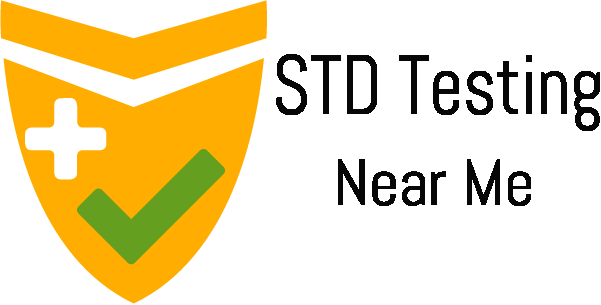We always may prefer the natural way.Yes, we all have those desires. We all may prefer sex without a condom or unprotected sex if guaranteed protection against STDs and unwanted pregnancies. But unfortunately, none of this can be guaranteed or can be taken for granted. Still, at times, the shit happens, maybe in the heat of the moment or we just let it happen. So the million dollar question comes is :
How can you reduce risk from unprotected sex?
Basically, we carry risks of two type when we have unprotected sex. 1) STD infection 2) Unwanted pregnancy. So the things which can be done to protect yourself from unwanted is as follows.
1) Have sex with the person who has been tested negative for STDs.
It is difficult to ask, but it is necessary. So the number one thing you need to do if you’ve had unprotected sex is, talk to the partner. You need to talk to them and ask them, ‘what is their sexual history’, ‘when is the last time that they’ve been tested for sexually transmitted diseases’ and have they ever been knowingly exposed to any STD. This is hard but it’s something that needs to happen.

2) Do not come in contact with blood, lactating breasts, vaginal fluids or semen, limit
Many STD spreads when you come in contact with the blood and bodily fluids of the infected person.Try to avoid as possible, coming in the direct contact. Although this is not a foolproof method, as some STDs like Herpes or Syphilis can transmit even by skin to skin contact. The above-stated practice reduces the risk of being infected by STDs.
3) Clean yourself after sex
To regain hygiene and to get away from the bodily fluid which may affect you to contract STIs, you need to take shower after sex. Taking shower reduces the chances of contracting STDs.
4) Emergency contraception
Even if your guy didn’t inseminate or you’re not on a reliable form of birth control then you’re going to need some sort of emergency contraception. The easiest thing to do is the morning-after pill which is available at your local pharmacy which is also known as Plan B. It’s most effective if used within 72 hours, but the sooner the better if you can do it within 24 hours. That is what’s really recommended.
5) STD testing and Pregnancy test
Next is you’re going to want to make an appointment with your OBGYN, you’re going to want to get a
full STD screen as soon as you can.
In case of detection of HIV, if she has any infection, chances are that her seroconversion is farther along and her diagnosis would be more accurate.Then again a
follow-up screen in a few weeks which they will likely also recommend. When you need to come back in lasts, you’re going to need to take a pregnancy test.
Even if you’ve
taken emergency contraceptive one in eight of those fails. So at two weeks after you’ve had the unprotected sex go and get a pregnancy test. If you miss your period that month, which is very common if you’ve taken emergency contraceptives because it tends to throw your period off you’re going to want to take another pregnancy test. if you’re unsure ?go to your doctor and get a blood pregnancy test.The sooner you know the better.6) Reduce risk of HIV contraction after sex with an HIV infected person.
6a) How to prevent HIV before unprotected sex? What are PREP and PEP?
PREP (Pre-exposure prophylaxis) also known as PREP. PREP is a medication that prevents people from contracting HIV. It needs to be taken every day and it needs to be taken before having unprotected sex and it is subscribed to people who tell their doctor that they enjoy sex without condoms.
To get prep from a doctor near you simply go online to
STD testing near you and type in your zip code to view a list of nearby doctors who have experience with PREP. If you already have a doctor, that you trust you can also ask them to prescribe PREP many local health departments and community agencies also provide PREP free of charge check out.
The AIDS Healthcare Foundation which has several clinics across the United States and they provide PREP to people regardless of their ability to pay.
6b) How to prevent HIV after you’ve had unprotected sex or post-exposure prophylaxis?
Post -exposure-prophylaxis, also known as PEP. PEP must be started within 72 hours after possible HIV exposure from sex. Drugs PEP is subscribed to people who tell a doctor that they may have been exposed to HIV. Doctors understand that sometimes people are just so excited to have sex that they don’t use a condom. If you need help finding a PEP provider, simply go online to
STD testing near me and type in your zip code to view a list of nearby doctors who have experience with PEP just like PREP.
Many local health departments and community agencies can also provide best free of charge. Check out the AIDS Healthcare Foundation which has numerous clinics across the United States that provides tests to people regardless of their ability to pay or go to the emergency room at the nearest hospital. Ask the doctors for PEP lessons.
6c) People who already have HIV
People with HIV can live a very long, healthy life. More than 1.2 million people in the United States are living with HIV. Many are living healthy long lives because they got tested early and consistently take their HIV medication.
In fact, HIV is now considered a chronic manageable disease, not a fatal diagnosis and people living with HIV in the United States are eligible for free medical care and medications through the Ryan White Care Act, therefore, there’s no reason
not to get tested or to get treatment for more information on
how to take an HIV test or get your special someone to take an HIV test.


